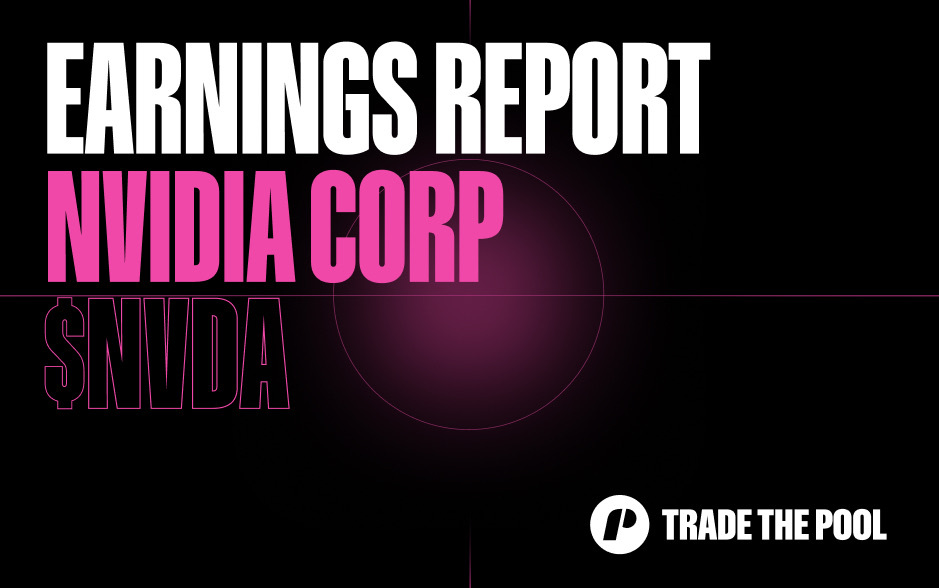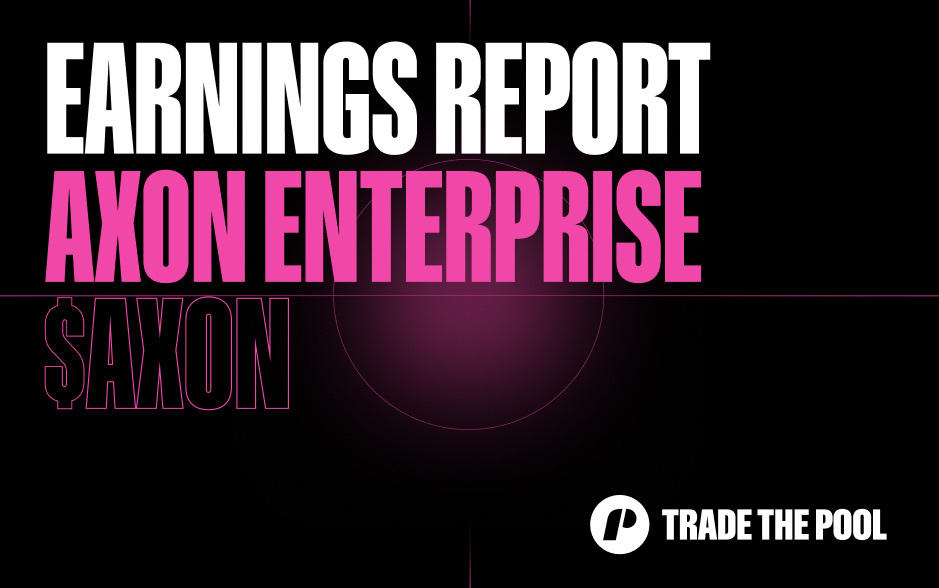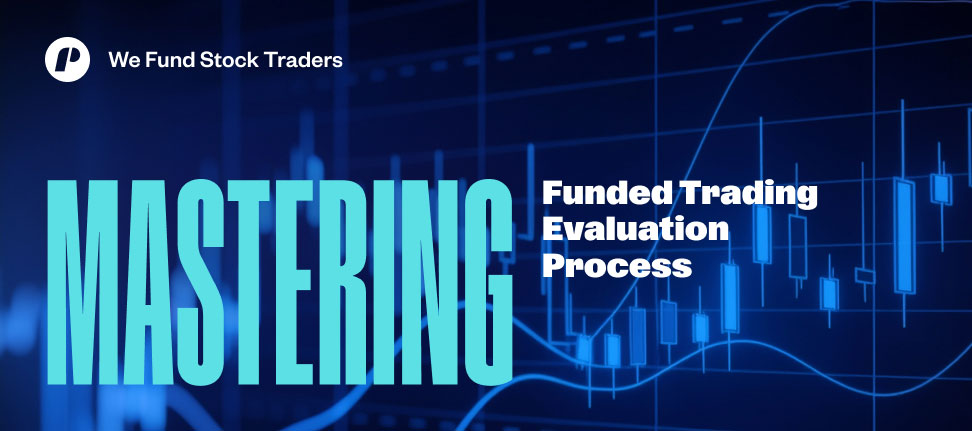
Funded stock trading attracts aspiring traders by offering the opportunity to manage significant capital without personal financial risk. Traders must demonstrate their skills through a structured evaluation process to access proprietary (prop) firm funds. These evaluations serve as critical training grounds, requiring disciplined execution and fostering consistent, professional habits essential for success in volatile global markets. This journey begins with a fundamental understanding of the core assessment itself. Many beginners immediately ask the same critical question: What is a funded trading evaluation process? The answer is simple: A funded trading evaluation process is a mandatory trading test set by a reputable prop firm where traders must prove their skills under strict, specific rules. This occurs before being granted access to real, live capital.
Key Notes:
- Scaling Strategy into Professional Capital
- Difficulty and Statistics of the Funded Trading Evaluation
- Steps of Funded Trading Evaluation Process
- Strategic Advantages
- Psychology and Avoiding Account Blow-Ups
- Practical Application
The Funded Trading Evaluation Process: Scaling Strategy into Professional Capital
This challenging path transforms trading from a solitary, expensive hobby into a scalable, high-potential, process-driven trading career. Stock traders seek these funding evaluations to efficiently scale proven, existing strategies. Specifically, this establishes a vital connection directly to earning real capital from the prop firms. This process clarifies the objective of the entire trading evaluation: it is a gateway to access institutional resources. These firms provide advanced necessary tools, ample leverage, and generous profit splits. Therefore, traders keep most of the resulting gains, typically 70% to 90%, after successfully passing the initial test. This critical route forms the start of a professional online trading process. It builds significant careers without requiring large upfront personal capital. Furthermore, it fundamentally democratizes access to professional-level trading opportunities. This is achieved by making a successful prop firm evaluation the key requirement, not inherited wealth.
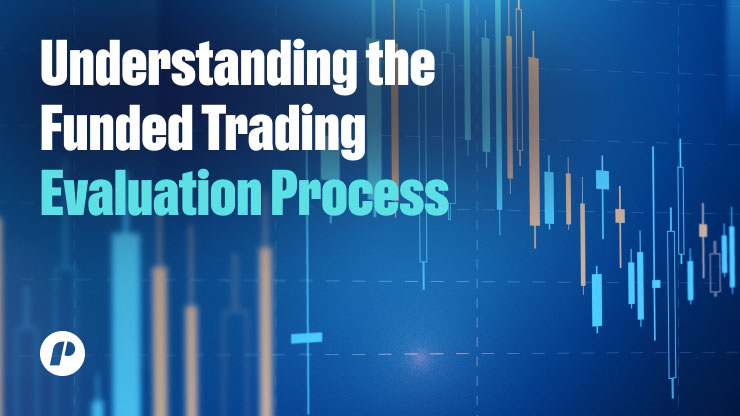
Understanding the Funded Trading Evaluation Process
Traders begin their professional journey by mastering the core concepts of funded evaluations, laying a foundation for long-term success. These assessments are essential steps in the online trading process. Understanding the evaluation mechanism helps traders approach the challenge strategically and set realistic goals. The structure requires disciplined execution and precise risk management. Moreover, this moves definitively beyond basic, emotional speculation. It firmly establishes a necessary, robust professional trading framework for the future.
Key Benefits of a Prop Firm
This naturally leads to a common reflection among aspiring intermediate traders: Is a funded account a good idea for stock traders? Yes, it is, because it gives successful traders immediate access to much larger capital pools without forcing them to risk their own money. However, strict, non-negotiable rules must always be followed rigorously. The general benefits are clear. Furthermore, traders need to know what they gain from the partner firm. So, what are the benefits of a prop firm for trading stocks? Prop firms provide substantial, critical funding, clear risk management frameworks, advanced analytical platforms, and access to crucial global stock markets. Consequently, this comprehensive infrastructural support drastically lowers the steep financial barrier to entry for serious, disciplined traders.
Scaling Capital and Earning Potential
The primary financial reward stems directly from that access to capital. Do funded stock traders make money? They do, consistently, if they adhere to the rules! If traders trade profitably and follow the firm’s guidelines, they earn a significant share of profits, usually between 70% and 90%. This generous split allows traders to capitalize on their skills without the limitations of a small personal account.
Case Study: Michael T. is a powerful example of capital scaling; he is an active trader who successfully balances his full-time accounting career with consistent trading. Over the past year and a half with Trade The Pool, Michael earned a verified total of $75,000 in payouts, averaging roughly $7,000 monthly, all while keeping his professional job. He successfully overcame initial emotional trading from oversized positions by enforcing discipline through the platform’s stringent risk parameters.
This strategic pivot showed him the actual, powerful value of disciplined capital scaling in the process-driven trading environment.
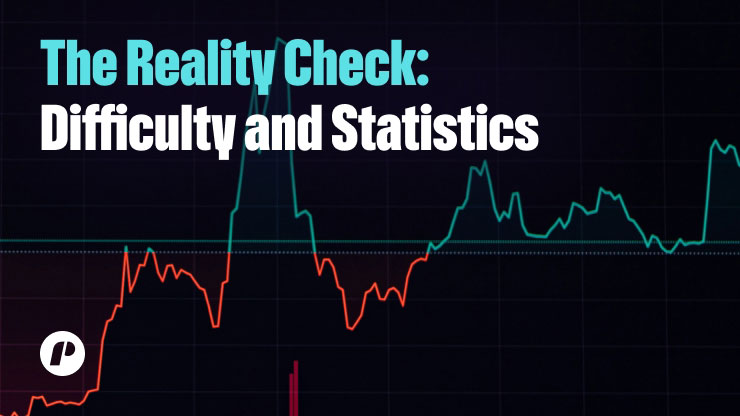
The Reality Check: Difficulty and Statistics of the Funded Trading Evaluation
These challenges test a trader’s skill harshly. Many aspirants significantly underestimate the high hurdles they face during the assessment. Consequently, preparation must extend far beyond simple, superficial strategy knowledge. This moves into necessary mental resilience and rule mastery. Maintaining realistic expectations is crucial for mental and financial longevity within this competitive professional environment. The complex data proves that success demands unwavering resilience and meticulous attention to every single trading detail. Traders must internalize failure not as a final roadblock but as necessary, valuable feedback for future improvement. Understanding the difficulty helps calibrate expectations correctly. How difficult is it to get a funded stock account? It is challenging, with strict minimum profit targets and maximum loss limits. Unfortunately, most traders will fail on their first attempt due to inexperience.
Understanding the Low Pass Rate
This raises the essential question about industry-wide performance: How many people fail/pass a prop firm evaluation? Pass rates are statistically low—roughly 5%–15% succeed. Conversely, most fail due to simple, preventable risk management errors like over-leveraging or emotional trading. Expanding on this point, what is the pass rate for a funded stock challenge? On average, fewer than 10% of dedicated traders pass a funded challenge on their initial try. This low success rate filters out those lacking discipline or a robust trading strategy. While the odds are challenging, can beginners succeed with funded stock accounts? Yes, but beginners face steep odds. Success requires discipline, a clear, tested strategy, and realistic expectations aligned with the statistics from the beginning.
Case Study: The Value of Process-Driven Trading
The key to overcoming these steep odds is shifting focus from profit-chasing to consistency and risk control.
Case Study: Cade failed his first prop firm evaluation attempt by aggressively chasing the 6% profit target, quickly violating his daily loss limit. For his latest attempt, he committed to a consistent early market setup with predictable dumps, hitting the final target over five consistent trading days.
This strategic pivot showed him the actual, lasting value of process-driven trading over risky speed and aggression.
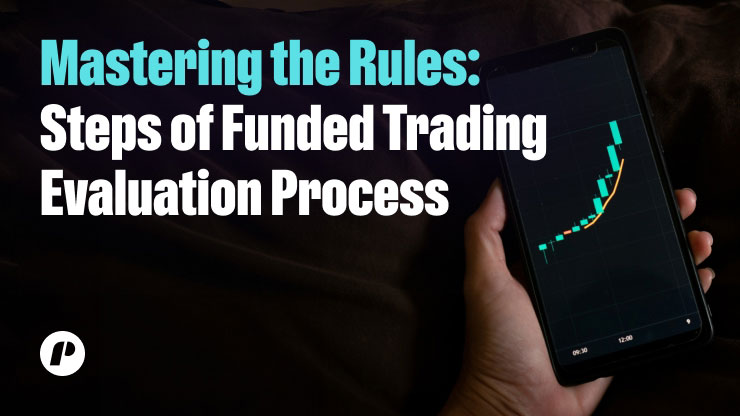
Mastering the Rules: Steps of Funded Trading Evaluation Process
Rigorous rules fundamentally define the entire prop firm evaluation process, demanding complete mastery for successful, compliant completion. Passing requires much more than simple profitability. It primarily tests your ability to operate consistently within tight, professional constraints. Understanding the nuances of profit targets, maximum loss, and drawdown limits is paramount to long-term success. Consistency always dramatically outweighs sudden, aggressive, and unsustainable gains.
Meeting Profit and Loss Limits (Targets and Drawdowns)
This journey’s central instruction is explicit: How to pass a funded stock trader challenge? You must hit the specific profit targets, strictly respect all drawdowns, maintain consistent active trading, and stick entirely to a robust, proven strategy you have rigorously back-tested. Knowing the technical hurdles is key, so what is required to pass a funded account? You must reach the required profit target and strictly avoid the maximum loss/drawdown limits specified by the firm. These fundamental requirements form the core of the successful online trading process.
Unique Consistency Rules for Stock Trading
Proprietary stock firms often enforce unique rules to protect against lucky high-risk swings. For instance, specific firms like Trade The Pool implement a Max Position Profit Ratio where your single best trade cannot account for more than 30% of your total required profit target. Other rules ensure active, genuine trading by demanding a Minimum Trade Duration (e.g., 30 seconds) and a Minimum Tick/Price Range (e.g., 10 cents profit per share). These stringent requirements ensure that success is based on consistent, multiple trades, not a single speculative gamble, solidifying the importance of process-driven trading.
Strategy and Execution for Evaluation Compliance
Compliance demands both profitability and patience, leading to a common question about consistency: What are the minimum trade positions in a prop firm for stocks? Most reliable prop firms require a minimum of 10–20 trade positions before the evaluation can be officially completed. This fundamentally emphasizes the necessity of consistent, smart risk execution, not just luck. Focus on highly liquid stocks, always using protective stop-losses on every trade to manage risk effectively.
Case Study: Filip focused exclusively on news-driven stocks with clean directional moves, ensuring he never risked more than 0.5% of the initial capital per trade. He hit the profit target on day ten, easily satisfying the minimum trade position requirement through meticulous, detail-oriented execution and adherence to his day trading strategy and set rules.
Strategic Advantages: Why Trade with a Prop Firm Evaluation?
Prop firms strategically solve common entry barriers, specifically enabling accelerated capital growth for ambitious stock traders. This immediate access to substantial capital and advanced tools immediately levels the steep competitive playing field for underfunded individuals. Understanding the technical rules surrounding regulation and account risk management is essential for securing long-term funding success. Choosing the right stock prop firm evaluation option must always align perfectly with your specific personal trading style and inherent risk tolerance.
Regulatory Relief: Bypassing the PDT Rule
One of the most significant immediate benefits for day traders is regulatory relief. Consider the PDT Rule and the Prop Firm Solution: How Prop Firms Bypass the Pattern Day Trader (PDT) Rule for traders with less than $25,000. Prop firms effectively bypass the Pattern Day Trader rule by letting traders utilize the firm’s capital for trading, thereby legally avoiding SEC cash account restrictions for small personal accounts. This crucial benefit opens up frequent, necessary day trading to nearly everyone who passes the evaluation, significantly lowering the financial hurdle to entry.
Navigating Drawdown Types (Static vs. Trailing)
Another critical technical distinction is understanding risk limits. What is a static vs. trailing drawdown? Static drawdown stays fixed relative to the initial account balance, offering more certainty and predictability in risk management. In contrast, trailing drawdown moves up dynamically as profits are successfully made, increasing risk management complexity by setting a constantly moving maximum limit from the peak equity point.
Case Study: Landon, who prefers holding positions overnight (swing trading), intentionally chose a prop firm offering a Static Drawdown option.
This strategic choice allowed his open profit to fluctuate naturally overnight without unnecessarily moving his maximum drawdown limit, ultimately protecting his initial capital and enabling his specific online trading process to succeed.
Strategy: Quick Passing and Consistency
Practical evaluation requires both discipline and strategic action. Therefore, how can I quickly pass a funded stock account? You should trade only highly liquid stocks, manage all risk exceptionally tightly, and consistently balance quick gains to avoid critical, account-busting rule violations. You must focus on high-probability setups to meet the targets efficiently while strictly respecting the drawdown rules. Ultimately, the successful prop firm evaluation relies on making consistent, calculated risk-management decisions, not taking reckless, large swings.

The Mental Game: Psychology and Avoiding Account Blow-Ups
Your consistent mindset will ultimately decide your long-term success; trading introduces intense mental tests daily under pressure. The added pressure of strict firm rules can dramatically amplify stress and the speed of decision-making under uncertainty. Mastering trading psychology is absolutely just as vital as mastering strategy execution. Resilience, patience, and self-awareness are non-negotiable professional qualities for any funded trader.
Handling Setbacks and Drawdowns
When facing setbacks, traders must understand their options. What should you do after losing a funded stock account? Thoroughly review your mistakes, reset your mindset, and reapply only after developing a disciplined, detailed plan for your next attempt. Managing daily risk is challenging. How do you address drawdowns in a funded stock account? Reduce position sizes promptly, decrease trading frequency, and prioritize capital preservation until performance stabilizes. This is a critical step in the process of trading evaluation. Many traders also ask if the stress is worth the effort: Is being a stock trader stressful? Yes, trading is inherently stressful due to the constant interplay of market risk, uncertainty, and fast decision-making, mainly when operating strictly under a firm’s high-pressure rules.
Strategy for Account Preservation
The key to long-term success is avoiding catastrophic loss, which requires unwavering discipline. Therefore, how can you avoid blowing a trading account? Use protective stop-losses on every single trade, strictly respect all risk limits, and avoid emotional trading or taking oversized, reckless positions at all costs.
Case Study: Pavishya blew her first evaluation account due to “revenge trading” after a series of small, frustrating losses. She took a mandatory two-month break and integrated daily mindfulness practice. She successfully passed her next challenge by strictly limiting her daily loss to 1%, regardless of the tempting urge to deviate.
Her recovery demonstrates the necessity of a stable, strong trading mindset.
Automation in the Online Funded Trading Evaluation Process
The use of specific automation strategies changes the dynamics of trader evaluations. Specialized bots can execute strategies precisely and tirelessly. Algorithmic strategies (algos) offer a disciplined, emotionless way to effectively enforce complex rules and remove inherent human emotion from trading decisions. While powerful and efficient, automation is certainly not a guaranteed path to success; it requires careful monitoring and extremely rigorous testing beforehand.
Compliance and Execution Tools
This raises a key policy question for prop firms: Can I use automated trading in a funded account? Yes, most reputable prop firms allow the use of trading bots, but they must still strictly follow all risk and trading rules set explicitly by the firm without exception. Success requires the right technology. Which tools help manage automated trading for stock accounts? You should utilize specific API connections, robust algorithmic execution platforms like Sterling Trader Pro or DAS Trader Pro, or specialized tools designed to execute algorithms and rigorously monitor risk across multiple trades. These tools offer the precision needed to manage a systematic plan within the tight constraints of a prop firm evaluation.
Testing Strategies and Effectiveness
Effective use of automation requires discipline in the testing phase. To ensure compliance, how can we safely test automated strategies in a funded evaluation trading process? Run bots extensively in simulated or demo accounts first, back-test thoroughly on historical data, and absolutely avoid exceeding drawdown limits before deployment in the live funding evaluation. The overall effectiveness is still debated: Do automated strategies increase the chance of passing a prop challenge? Potentially, if they are extremely well-tested, disciplined, and consistently follow the risk rules. Bots reduce emotional mistakes, but they simply cannot guarantee success in the markets.
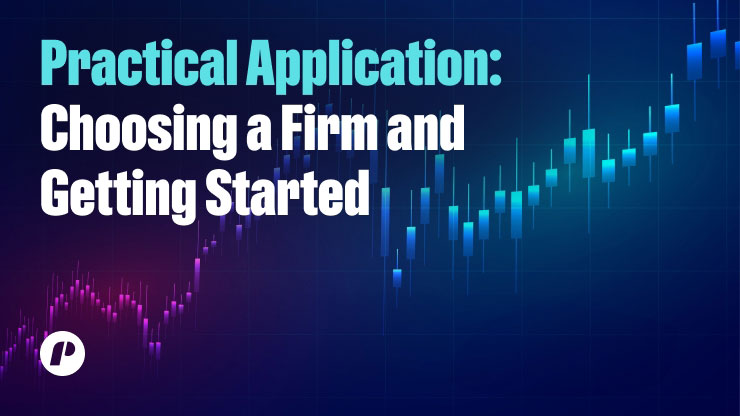
Practical Application: Choosing a Firm and Getting Started
Start your journey by selecting suitable prop firms wisely; focused action always follows reliable knowledge and due diligence. Apply with a reputable stock prop firm evaluation provider, complete their entire evaluation, and diligently follow all trading rules to officially qualify for live funding. Careful research ensures your trading style aligns with the firm’s specific offerings and fee structure. Informed, calculated choices always lead to better, more sustainable fits.
The Approval Process and Firm Selection
The initial step is to align your strategy with the right platform. The final administrative hurdle is simply getting started. How do you get approved for a funded account? You must apply with a reputable prop firm, successfully complete their entire evaluation, and consistently follow all established trading rules to qualify for live funding and an official profit split.
Selecting the right firm is crucial. Firms differentiate themselves by their core market focus, risk management structures, and unique rule sets. When prioritizing security and specialization in U.S. equities, you should seek a proven, Limited Risk Trading Platform that provides strict safety parameters. Trade The Pool, for example, is a dedicated platform that meets this requirement, offering a structure specifically built for stock traders’ needs, complete with specialized rules like the Max Position Profit Ratio. In contrast, many large futures firms also offer equity trading access—traders must ultimately choose the firm whose specific market focus, preferred drawdown style (static vs. trailing), and overall risk framework best align with their trading strategy.
Understanding the Cost of Entry
Many ambitious traders, particularly those scaling from small accounts, wonder about the initial financial commitment. Finally, a common hope for many new traders is funding without cost: Are there free funded stock accounts? Fully free-funded accounts do not exist; some firms may offer occasional trials or trading competitions. Still, firm-managed funding strictly requires passing a structured evaluation, which almost always involves an upfront fee. This external validation fee covers the firm’s simulated risk infrastructure, making it a necessary part of the online trading process.
Due Diligence in the Evaluation Steps
Success in the trading evaluation process depends entirely on prep work before the first trade.
Case Study: Aneury, determined to begin, spent rigorous weeks comparing the profit splits, rules, and drawdown types of three different firms before selecting one whose metrics perfectly matched his low-volatility, aftermarket strategy. His careful due diligence saved him the time, cost, and psychological strain of failing multiple unsuitable challenges by aligning his approach with the steps of the trading evaluation process.
This kind of strategic alignment transforms the challenge from a gamble into a calculated skill test.
Closing Thoughts: Success in the Funded Trading Evaluation Process
Funded trader evaluations demand a unique combination of skill, strict adherence to rules, and an unwavering, stable mindset. These practical steps will reliably lead you to professional funding and a sustainable career. Keep evolving through consistent effort; never stop diligently refining your tested strategy and risk management. Tracking performance metrics is absolutely paramount for continuous professional development. Trader evaluations transform raw personal aspirations into professional trading realities, fostering invaluable business habits early in your career. Overall, this demanding online trading process offers substantial, life-changing rewards and efficiently equips determined traders for enduring careers in the stock markets.
If you liked this post make sure to share it!

